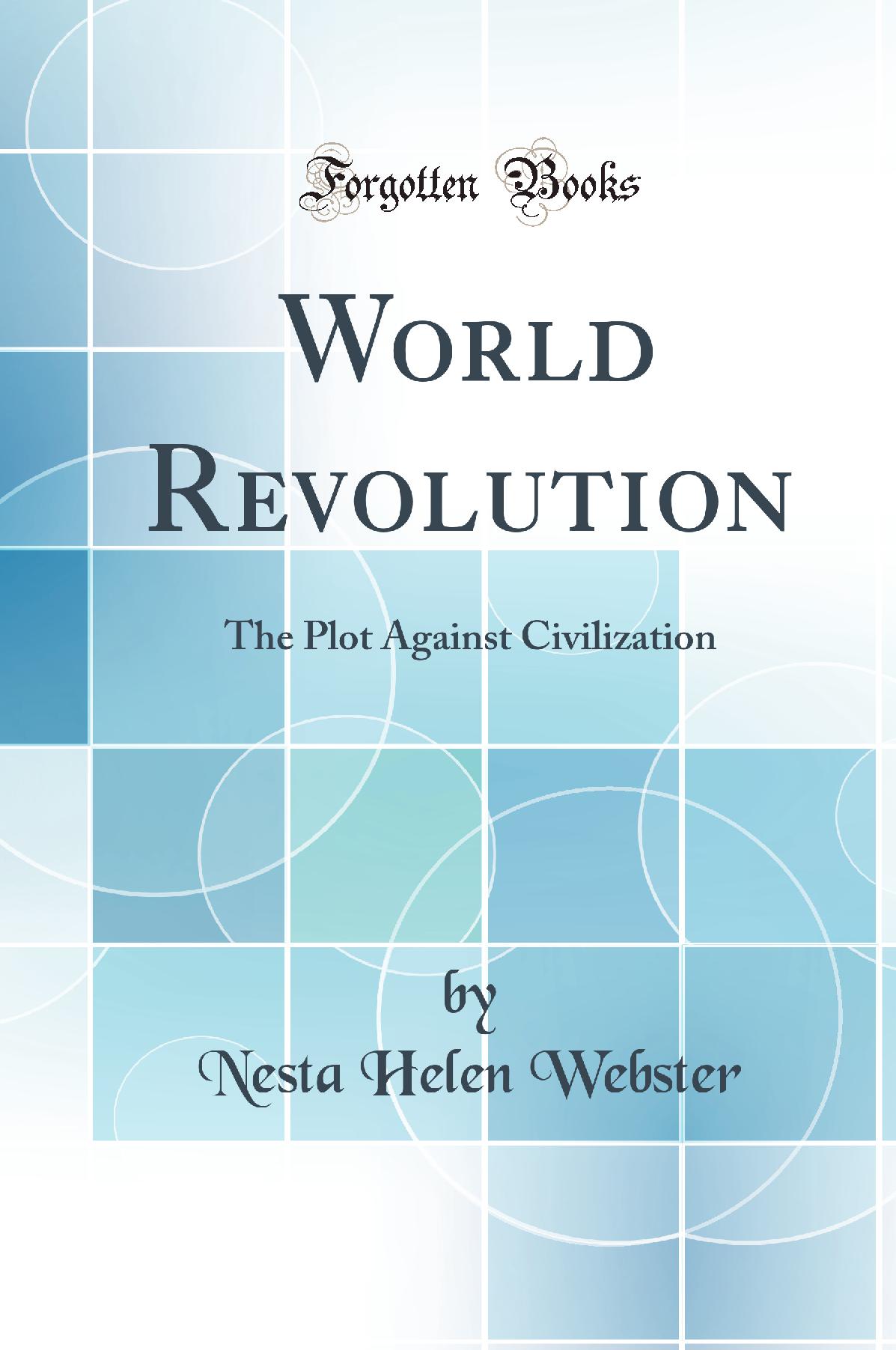Description
Excerpt from World Revolution: The Plot Against Civilization
Amongst all the books, pamphlets, and newspaper articles that are now devoted to the World Revolution through which we are passing, it is strange to notice how little M?g investigation is being brought to bear on the origins of the movement. A frequent explanation advanced, and, I believe, the most fallacious, is that the present unrest must be attributed to war weariness. Human nature, we are told, exasperated by the pro tracted horror of the recent international con?ict, has become the victim of a crise de nerfs which finds its expression in world-wide discontent. In Support of this theory we are reminded that former wars have likewise been followed by periods of social disturbance, and that by a process of analogy the symptoms may be expected to subside as the strain of war is relieved, in the same manner as they have subsided hitherto. It is true that political con?icts between nations have frequently in the past been followed by social upheavals the Napoleonic Wars by industrial troubles in England, the Franco Prussian War by revolutionary agitation not only in the land of the conquered, but of the conquerors but to regard these social manifestations as the direct outcome of the preceding international con?ict is to mistake con tributing for fundamental causes. Revolution is not the product of war, but a malady that a nation snfiering from the after-effects Of a war is most likely to develop, just as a man enfeebled by fatigue is more liable to contract disease than one who is''in a state of perfect vigour.
Yet this predisposing cause is by no means essential to the outbreak of revolutionary fever. The great French Revolution was not immediately preceded by a war of any magnitude, and to the observant mind England in 1914 was as near to revolution as in 1919. The intervening World War, far from producing the explosion in this country, merely retarded it by rallying citizens of all classes around the standard of. National defence.
About the Publisher
Forgotten Books publishes hundreds of thousands of rare and classic books. Find more at www.forgottenbooks.com
This book is a reproduction of an important historical work. Forgotten Books uses state-of-the-art technology to digitally reconstruct the work, preserving the original format whilst repairing imperfections present in the aged copy. In rare cases, an imperfection in the original, such as a blemish or missing page, may be replicated in our edition. We do, however, repair the vast majority of imperfections successfully; any imperfections that remain are intentionally left to preserve the state of such historical works.
Amongst all the books, pamphlets, and newspaper articles that are now devoted to the World Revolution through which we are passing, it is strange to notice how little M?g investigation is being brought to bear on the origins of the movement. A frequent explanation advanced, and, I believe, the most fallacious, is that the present unrest must be attributed to war weariness. Human nature, we are told, exasperated by the pro tracted horror of the recent international con?ict, has become the victim of a crise de nerfs which finds its expression in world-wide discontent. In Support of this theory we are reminded that former wars have likewise been followed by periods of social disturbance, and that by a process of analogy the symptoms may be expected to subside as the strain of war is relieved, in the same manner as they have subsided hitherto. It is true that political con?icts between nations have frequently in the past been followed by social upheavals the Napoleonic Wars by industrial troubles in England, the Franco Prussian War by revolutionary agitation not only in the land of the conquered, but of the conquerors but to regard these social manifestations as the direct outcome of the preceding international con?ict is to mistake con tributing for fundamental causes. Revolution is not the product of war, but a malady that a nation snfiering from the after-effects Of a war is most likely to develop, just as a man enfeebled by fatigue is more liable to contract disease than one who is''in a state of perfect vigour.
Yet this predisposing cause is by no means essential to the outbreak of revolutionary fever. The great French Revolution was not immediately preceded by a war of any magnitude, and to the observant mind England in 1914 was as near to revolution as in 1919. The intervening World War, far from producing the explosion in this country, merely retarded it by rallying citizens of all classes around the standard of. National defence.
About the Publisher
Forgotten Books publishes hundreds of thousands of rare and classic books. Find more at www.forgottenbooks.com
This book is a reproduction of an important historical work. Forgotten Books uses state-of-the-art technology to digitally reconstruct the work, preserving the original format whilst repairing imperfections present in the aged copy. In rare cases, an imperfection in the original, such as a blemish or missing page, may be replicated in our edition. We do, however, repair the vast majority of imperfections successfully; any imperfections that remain are intentionally left to preserve the state of such historical works.
Details
Publisher - Forgotten Books
Language - English
Hardback
Contributors
Author
Nesta Helen Webster
Published Date -
ISBN - 9781528166690
Dimensions - 22.9 x 15.2 x 1.8 cm
Page Count - 340
Paperback
Contributors
Author
Nesta Helen Webster
Published Date -
ISBN - 9781330478363
Dimensions - 22.9 x 15.2 x 1.8 cm
Page Count - 342
Payment & Security
Your payment information is processed securely. We do not store credit card details nor have access to your credit card information.

